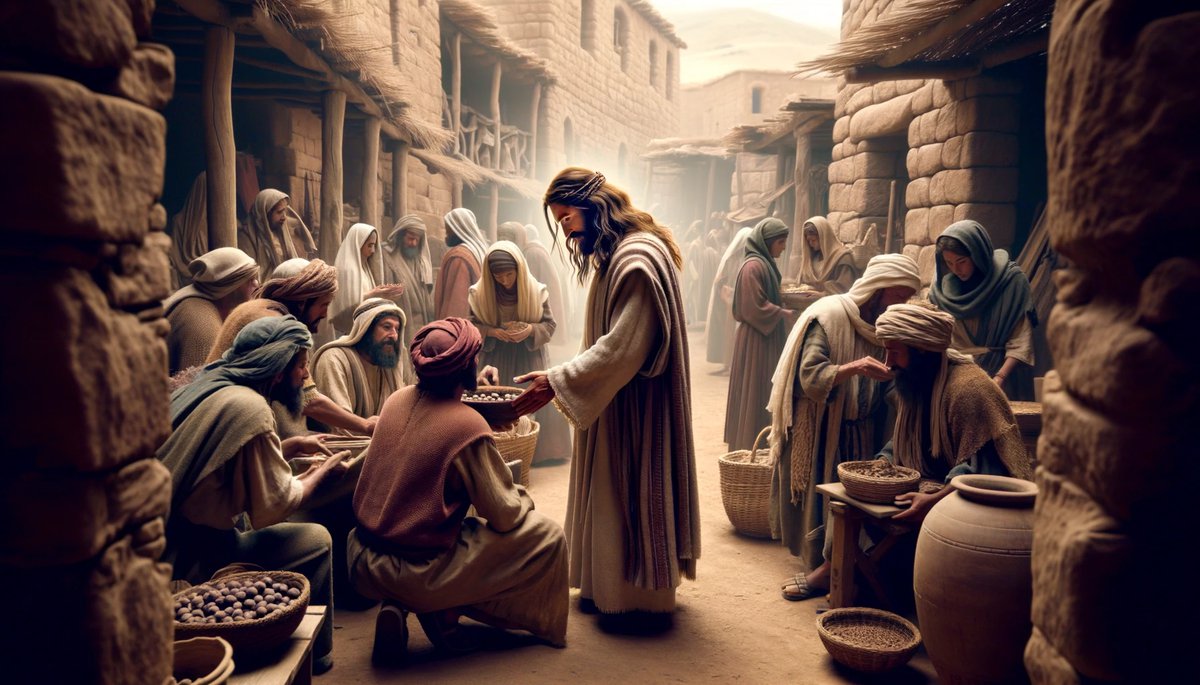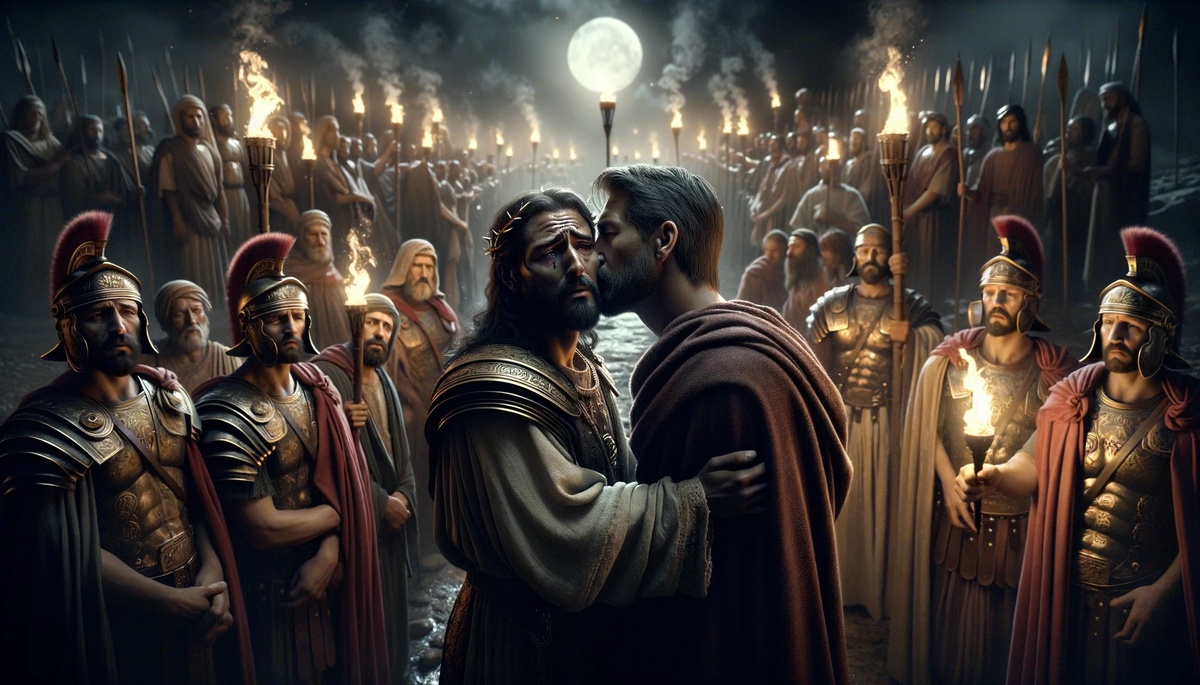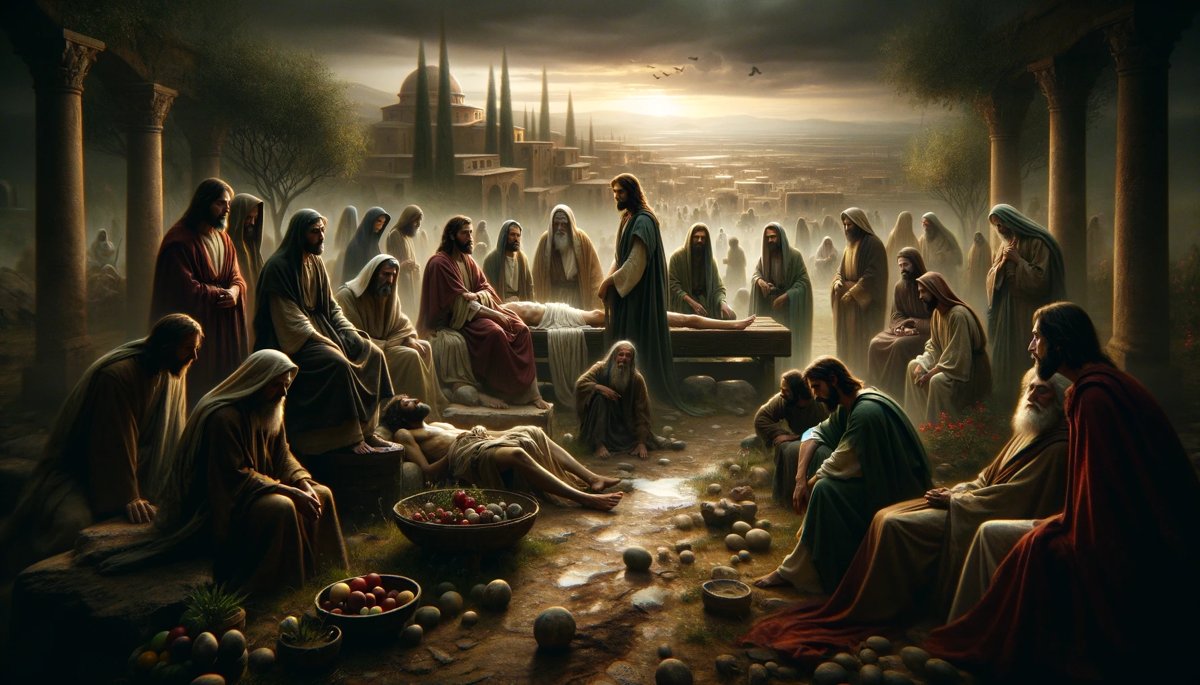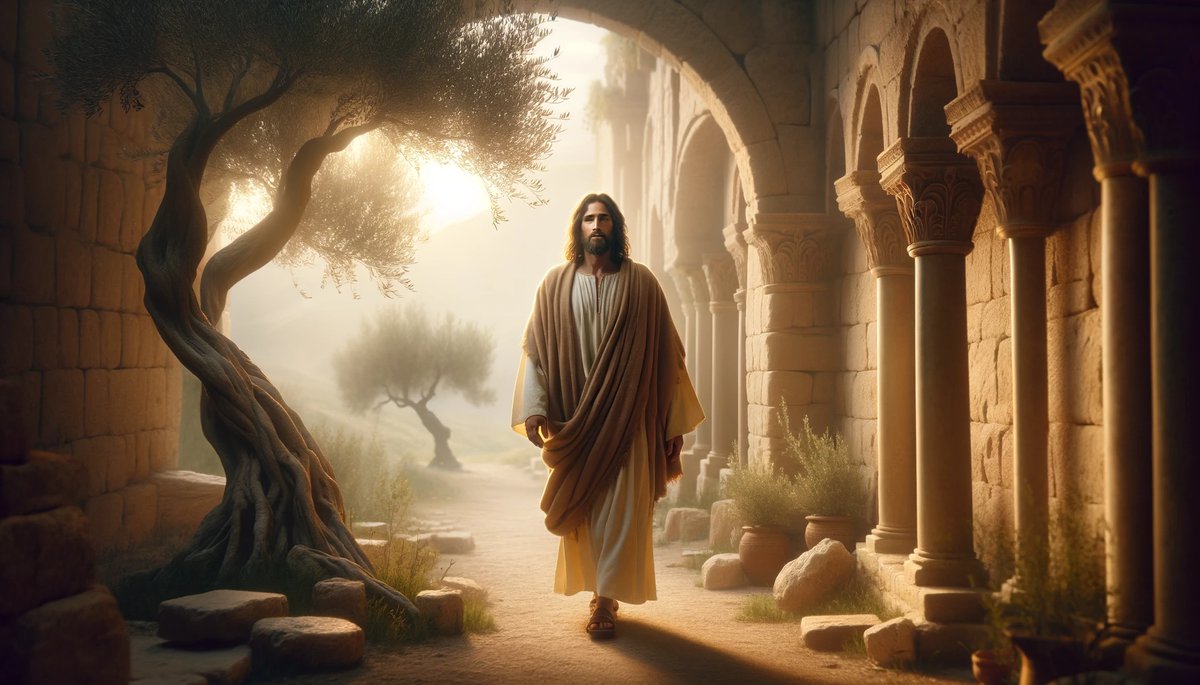Home>Christian Videos>Bible Stories>How Long Ago Did Jesus Christ Live
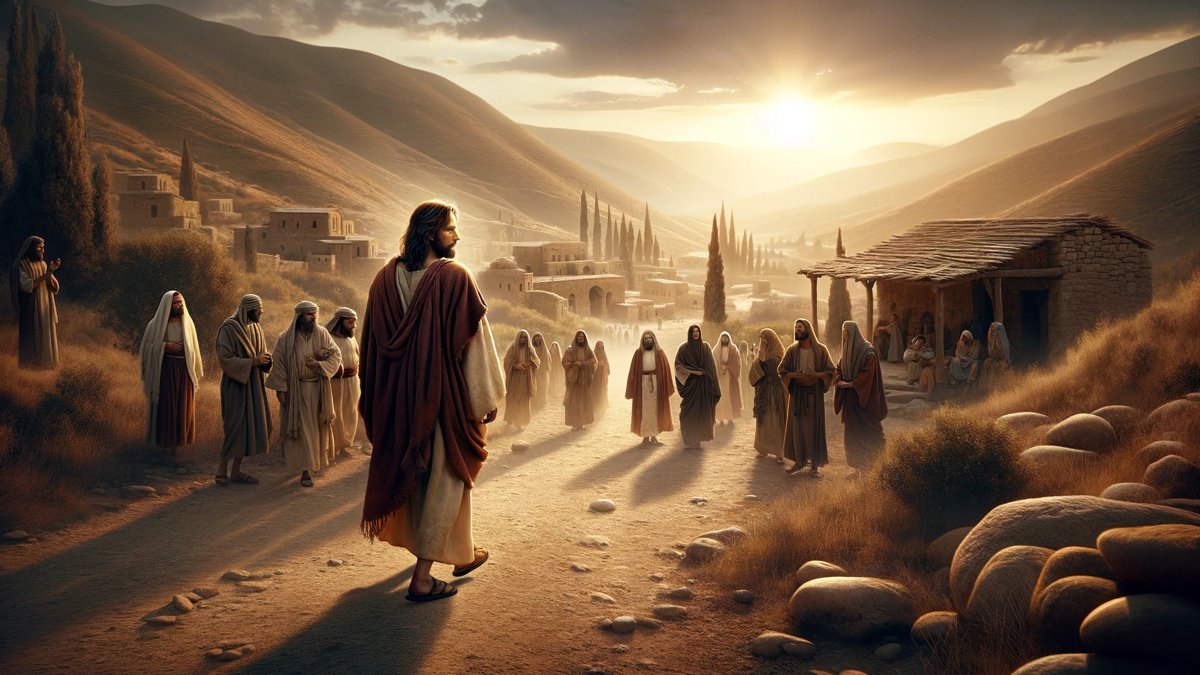

Bible Stories
How Long Ago Did Jesus Christ Live
Published: March 3, 2024
Peter Smith, Editorial Director at Christian.net, combines deep insights into faith, politics, and culture to lead content creation that resonates widely. Awarded for his contributions to religious discourse, he previously headed a major organization for religious communicators, enhancing dialogue on faith's societal impacts.
Discover the timeline of Jesus Christ's life in the Bible stories. Uncover the historical period of Jesus' existence and teachings. Explore the era of Jesus Christ's life.
(Many of the links in this article redirect to a specific reviewed product. Your purchase of these products through affiliate links helps to generate commission for Christian.net, at no extra cost. Learn more)
Table of Contents
Introduction
How long ago did Jesus Christ live? This is a question that has intrigued scholars, theologians, and believers for centuries. The life and teachings of Jesus Christ have had a profound impact on the course of human history, shaping the beliefs and practices of billions of people around the world. In this article, we will delve into the historical context of Jesus Christ's life, exploring the events that shaped his time on earth and examining the enduring legacy of his teachings. Join us on a journey through time as we seek to unravel the mysteries surrounding the life of one of the most influential figures in human history.
Read more: How To Live In Jesus Christ
Historical Context of Jesus Christ's Life
The historical context of Jesus Christ's life is crucial to understanding the world in which he lived and the events that unfolded during his time on earth. Jesus was born in the Roman province of Judea, a region that was under the rule of the Roman Empire. During this period, the Jewish people were living under Roman occupation, which had a significant impact on their religious, social, and political dynamics. The Roman presence in Judea brought about a complex and often tumultuous environment, marked by resistance, cultural exchange, and religious fervor.
The Jewish people were awaiting the arrival of a messianic figure who would deliver them from oppression and establish a kingdom of peace and justice. This longing for a savior was deeply rooted in the historical and religious consciousness of the Jewish people, shaped by their scriptures and prophetic traditions. It was within this historical backdrop of Roman occupation and messianic expectations that Jesus Christ emerged, offering a message of hope, love, and redemption to a people yearning for liberation.
The cultural and religious diversity of the region also played a significant role in shaping the context of Jesus Christ's life. Judea was a melting pot of different beliefs, traditions, and practices, with influences from Judaism, Hellenism, and various other cultural and religious traditions. This rich tapestry of beliefs and customs created a dynamic and multifaceted environment in which Jesus carried out his ministry and teachings, engaging with people from diverse backgrounds and challenging prevailing religious norms.
The historical context of Jesus Christ's life provides a compelling backdrop for understanding the complexities and challenges he faced during his earthly mission. It offers valuable insights into the social, political, and religious dynamics that shaped the world in which Jesus lived and the profound impact of his teachings on the course of human history. Understanding this historical context is essential for gaining a deeper appreciation of the enduring significance of Jesus Christ's life and message.
Birth and Early Life of Jesus Christ
-
Virgin Birth: According to Christian tradition, Jesus Christ was born to the Virgin Mary through the divine intervention of the Holy Spirit. This miraculous event, known as the virgin birth, is a central tenet of Christian faith and is believed to fulfill the prophecy of the Messiah's coming.
-
Bethlehem: Jesus was born in Bethlehem, a town in Judea, fulfilling the prophecy of the Messiah's birthplace. The Gospel accounts describe how Mary and Joseph traveled to Bethlehem for a census, and Jesus was born in a humble manger, symbolizing his identification with the marginalized and the poor.
-
Visits of the Magi and Shepherds: The birth of Jesus was accompanied by extraordinary events, including the visit of the Magi, who brought gifts of gold, frankincense, and myrrh, symbolizing Jesus' royal status, divinity, and sacrificial death. Additionally, shepherds in the fields were visited by angels who proclaimed the good news of Jesus' birth, signifying the universal significance of his arrival.
-
Flight to Egypt: Following the birth of Jesus, the Holy Family fled to Egypt to escape King Herod's decree to kill all male infants in Bethlehem. This event, known as the Flight to Egypt, highlights the vulnerability of Jesus and his family, as well as the political turmoil of the time.
-
Upbringing in Nazareth: After returning from Egypt, Jesus was raised in the town of Nazareth in Galilee. The Gospels provide limited details about his early life, but it is believed that Jesus grew up in a devout Jewish household, immersed in the teachings and traditions of his faith.
-
Visit to the Temple: At the age of twelve, Jesus visited the Temple in Jerusalem with his family. This visit is significant as it marks the first glimpse of Jesus' wisdom and understanding, as he engages in theological discussions with the religious leaders, foreshadowing his future role as a teacher and spiritual leader.
The birth and early life of Jesus Christ are foundational to Christian belief, shaping the understanding of his identity, mission, and significance. The miraculous circumstances of his birth, coupled with the events surrounding his upbringing, set the stage for the extraordinary life and ministry that would unfold in the years to come.
Ministry and Teachings of Jesus Christ
Jesus Christ's ministry and teachings are central to his legacy and have left an indelible mark on human history. His ministry began with his baptism by John the Baptist in the Jordan River, marking the commencement of his public proclamation and mission. The core of Jesus' ministry revolved around the proclamation of the "kingdom of God," a central theme in his teachings. He conveyed the message of God's reign, characterized by love, justice, and spiritual transformation, inviting people to embrace a new way of living and relating to God and one another.
Key Aspects of Jesus' Ministry and Teachings
-
Parables: Jesus often used parables, or short stories, to convey profound spiritual truths in a simple and relatable manner. These parables addressed themes such as forgiveness, compassion, and the inclusive nature of God's kingdom, challenging societal norms and religious conventions.
-
Miracles: Throughout his ministry, Jesus performed numerous miracles, including healing the sick, restoring sight to the blind, and even raising the dead. These acts of compassion and divine power served as tangible demonstrations of God's love and the arrival of the kingdom of God.
-
Sermon on the Mount: One of the most renowned teachings of Jesus is the Sermon on the Mount, which encompasses the Beatitudes and addresses ethical and moral principles. In this sermon, Jesus articulated a radical vision of blessedness, emphasizing humility, mercy, peacemaking, and righteousness as foundational values in the kingdom of God.
-
Challenging Religious Authorities: Jesus confronted the religious establishment of his time, critiquing hypocrisy, legalism, and the exploitation of the marginalized. His teachings emphasized the primacy of love, compassion, and genuine faith over religious formalism and ritualistic practices.
-
Inclusivity and Compassion: Jesus' ministry was characterized by inclusivity and compassion, as he reached out to the marginalized, embraced social outcasts, and welcomed sinners. His teachings emphasized the transformative power of love and the radical inclusivity of God's grace.
Impact of Jesus' Ministry and Teachings
The ministry and teachings of Jesus Christ sparked a profound spiritual and social revolution, challenging existing power structures and inspiring a movement of love, justice, and reconciliation. His message of radical love and the kingdom of God transcended cultural and religious boundaries, resonating with people from diverse backgrounds and laying the foundation for a global faith community.
Jesus' teachings continue to influence ethical and moral frameworks, shaping the values of compassion, forgiveness, and social justice. His emphasis on love for God and neighbor has permeated the fabric of human consciousness, inspiring countless individuals and movements dedicated to alleviating suffering and promoting the common good.
In summary, the ministry and teachings of Jesus Christ exemplify a transformative vision of spiritual renewal, social justice, and inclusive love, leaving an enduring legacy that continues to resonate across cultures and generations.
Crucifixion and Death of Jesus Christ
The crucifixion and death of Jesus Christ represent a pivotal and profound moment in Christian theology and history. The events leading to his crucifixion are deeply intertwined with the fulfillment of divine purpose and the sacrificial nature of his mission on earth. The crucifixion of Jesus is a central tenet of Christian faith, symbolizing the redemptive act through which humanity is reconciled with God.
Key Aspects of the Crucifixion and Death
-
Betrayal and Arrest: The night before his crucifixion, Jesus was betrayed by one of his disciples, Judas Iscariot, and subsequently arrested by the religious authorities. This marked the beginning of the events that would lead to his crucifixion.
-
Trial and Sentencing: Jesus faced a series of trials before both Jewish and Roman authorities, during which he was accused of blasphemy and sedition. Despite the lack of substantial evidence, he was sentenced to death by crucifixion, a form of execution reserved for the most heinous crimes.
-
The Via Dolorosa: Following his sentencing, Jesus was subjected to a harrowing journey known as the Via Dolorosa, or the Way of Suffering. He carried the cross to the site of his crucifixion, enduring physical and emotional anguish along the way.
-
Crucifixion: Jesus was nailed to the cross at Golgotha, where he endured excruciating suffering and humiliation. The crucifixion represents the ultimate act of self-sacrifice, as Jesus willingly offered himself as a atonement for the sins of humanity.
-
Last Words: During his crucifixion, Jesus uttered several profound statements, including the famous words, "Father, forgive them, for they know not what they do." These words exemplify his compassion and forgiveness even in the midst of unimaginable suffering.
-
Death and Burial: After enduring hours of agony on the cross, Jesus breathed his last breath, signaling the culmination of his earthly life. He was then taken down from the cross and laid to rest in a tomb, fulfilling the prophecy of his death and subsequent resurrection.
Significance of the Crucifixion and Death
The crucifixion and death of Jesus Christ hold profound theological and spiritual significance for Christians. It is viewed as the ultimate expression of God's love and mercy, as Jesus willingly offered himself as a sacrifice to atone for the sins of humanity. His death is seen as a redemptive act, through which the barrier of sin and separation from God is overcome, offering the promise of forgiveness and reconciliation.
The crucifixion also serves as a powerful symbol of solidarity with human suffering, as Jesus, the Son of God, willingly endured the depths of human pain and anguish. This act of solidarity resonates deeply with believers, offering comfort and hope in the midst of their own trials and tribulations.
Furthermore, the death of Jesus is inseparable from the hope of resurrection, as it sets the stage for the triumph of life over death. The empty tomb and the subsequent resurrection of Jesus are foundational to Christian faith, signifying the victory over sin and the assurance of eternal life.
In summary, the crucifixion and death of Jesus Christ represent the culmination of his earthly mission, embodying the sacrificial love and redemptive purpose that lie at the heart of Christian belief. This profound event continues to inspire contemplation, reverence, and gratitude among believers, serving as a timeless symbol of divine grace and the promise of new life.
Read more: How Did Jesus Become The Christ?
Resurrection and Ascension of Jesus Christ
The resurrection and ascension of Jesus Christ are pivotal events in Christian theology, signifying the triumph over death and the fulfillment of divine promises. The resurrection of Jesus is the cornerstone of Christian faith, representing the ultimate vindication of his identity as the Son of God and the assurance of eternal life for believers.
Resurrection
The Gospels recount the miraculous resurrection of Jesus, describing how he rose from the dead on the third day after his crucifixion. The empty tomb serves as a powerful symbol of the transformative power of God, signaling the defeat of death and the dawn of a new era. The resurrection appearances of Jesus to his disciples and followers provided irrefutable evidence of his victory over the grave, inspiring awe, joy, and a renewed sense of purpose among his followers.
The resurrection of Jesus holds profound theological significance, affirming the core tenets of Christian belief. It validates the claims of Jesus regarding his identity as the Messiah and the Son of God, confirming the truth of his teachings and the promise of salvation. The resurrection also serves as a source of hope and comfort, assuring believers of the reality of life beyond the confines of mortality and the certainty of God's redemptive power.
Ascension
Following his resurrection, Jesus ascended into heaven in the presence of his disciples, marking the culmination of his earthly ministry and the establishment of his eternal reign. The ascension of Jesus is a testament to his exalted status and divine authority, as he is seated at the right hand of God, reigning as Lord and Savior. This event signifies the completion of Jesus' earthly mission and the inauguration of a new phase in the unfolding of God's redemptive plan.
The ascension of Jesus holds profound implications for Christian faith and practice. It affirms the continuity of Jesus' presence with his followers through the indwelling of the Holy Spirit, empowering them to carry forth his mission of love, reconciliation, and proclamation of the gospel. The ascension also serves as a source of hope and anticipation, as believers await the promised return of Jesus in glory to establish the fullness of God's kingdom.
In summary, the resurrection and ascension of Jesus Christ represent the culmination of his redemptive work and the assurance of his ongoing presence and sovereignty. These transformative events continue to inspire faith, hope, and devotion among believers, serving as enduring symbols of God's power and the promise of new life in Christ.
Impact and Legacy of Jesus Christ
The impact and legacy of Jesus Christ reverberate across centuries, transcending geographical, cultural, and religious boundaries. His life, teachings, death, and resurrection have left an indelible mark on human history, shaping the course of civilization and influencing the beliefs and practices of billions of people worldwide. The enduring impact of Jesus Christ can be observed in various dimensions, encompassing spiritual, ethical, social, and cultural realms.
Read more: How Did Jesus Christ Die?
Spiritual Transformation
Jesus Christ's life and teachings have been a catalyst for spiritual transformation, inspiring individuals to seek deeper meaning, purpose, and connection with the divine. His message of love, forgiveness, and redemption has offered solace and hope to countless individuals, guiding them on a path of spiritual renewal and inner peace. The profound impact of Jesus' spiritual legacy is evident in the lives of those who have experienced personal transformation and a renewed sense of faith and purpose through their encounter with his teachings.
Ethical and Moral Frameworks
The ethical and moral teachings of Jesus Christ have permeated the fabric of human society, influencing the development of ethical frameworks, social justice movements, and humanitarian endeavors. His emphasis on compassion, justice, and the inherent worth of every individual has served as a moral compass, inspiring individuals and communities to advocate for the marginalized, alleviate suffering, and strive for a more just and equitable world. The legacy of Jesus' ethical teachings continues to shape the values of empathy, integrity, and altruism, guiding individuals and societies in their pursuit of the common good.
Cultural and Artistic Expression
The legacy of Jesus Christ has been a wellspring of artistic, literary, and cultural expression, serving as a muse for creative endeavors that seek to capture the depth of his impact on humanity. Throughout history, artists, writers, musicians, and filmmakers have drawn inspiration from the life of Jesus, producing timeless works of art, literature, and music that reflect the enduring significance of his legacy. The cultural impact of Jesus Christ's life and teachings is evident in the rich tapestry of artistic masterpieces, sacred music, and literary works that continue to resonate with audiences across diverse cultural landscapes.
Global Influence
The influence of Jesus Christ extends far beyond the boundaries of Christianity, permeating global discourse on spirituality, ethics, and human rights. His teachings on love, compassion, and the dignity of every individual have transcended religious affiliations, resonating with people of various faith traditions and philosophical perspectives. The global impact of Jesus' legacy is evident in the universal appeal of his message, which has inspired movements for peace, reconciliation, and the empowerment of the oppressed, transcending cultural and geopolitical divides.
In summary, the impact and legacy of Jesus Christ are profound and far-reaching, shaping the spiritual, ethical, cultural, and global landscape of human civilization. His enduring influence continues to inspire individuals and communities to seek a path of compassion, justice, and spiritual renewal, embodying the timeless significance of his life and teachings.


